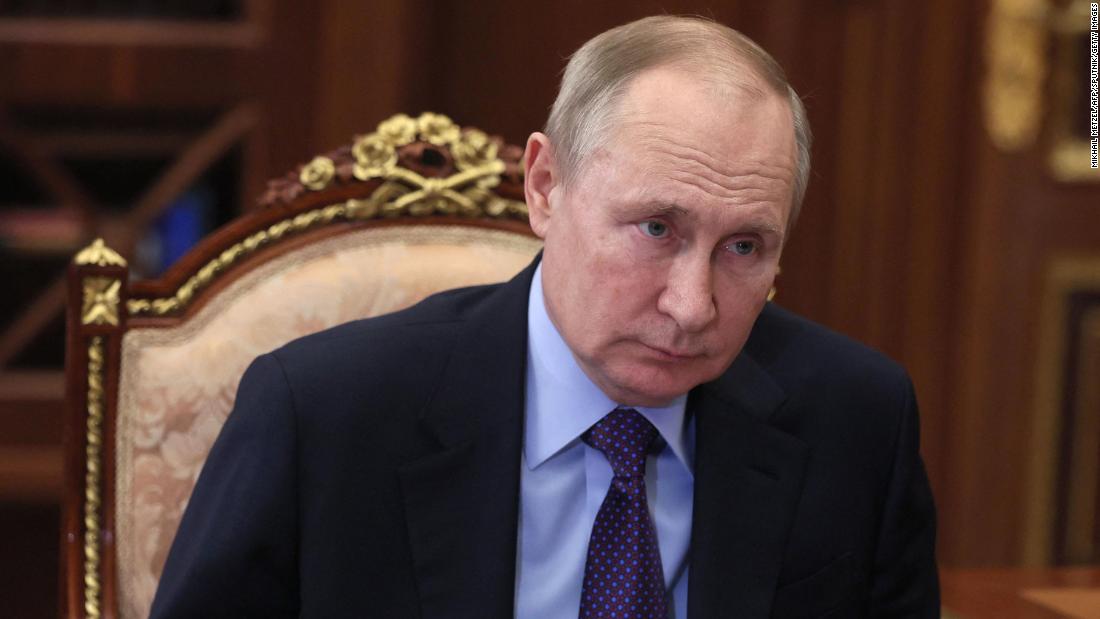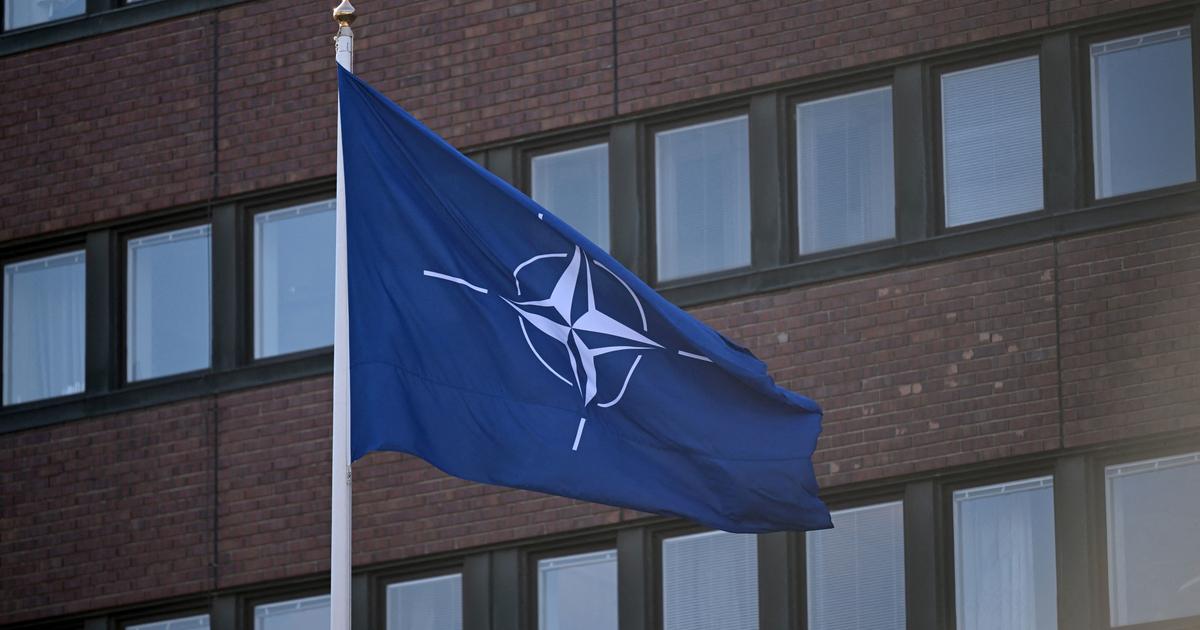Putin makes alarming remarks on cooperation with China 2:00
(CNN) --
Europe has a long and bloody history of wars, of brutally contested borders and of nations and empires carving destructive furrows far from home.
But a sad harvest of pain and loss after World War II was followed by decades of relative peace and prosperity, even during a Cold War.
Today that peace is being severely tested by Russian President Vladimir Putin as he masses troops on the Ukraine border and diplomats are raising the alarm in no uncertain terms.
The US ambassador to the 57th nation, Organization for Security and Cooperation in Europe (OSCE), Michael Carpenter, warned Thursday that European security is facing a "crisis", "the drum of war sounds loud" .
ANALYSIS |
The West has a rare opportunity to put Putin in his place
Putin, whose nation buried tens of millions of people in European wars, is unearthing new grievances about post-World War peace, specifically the role of NATO, the transatlantic defensive alliance and the counterpoint to Russia's predecessor, the Union. Soviet.
Last summer, in a 20-page document citing centuries of blood-spattered history, Putin reclaimed Ukraine, which regained its independence in 1991 after the collapse of the Soviet Union, stating that "Russians, Ukrainians and Belarusians are all descendants of ancient Rus', which was the largest state in Europe".
He concluded that "our spiritual, human and civilizational ties formed over centuries have their origin in the same sources... the true sovereignty of Ukraine is possible only in partnership with Russia."
advertising
As commander of the world's fifth-largest army, and only halfway through an expected rule of nearly four decades, Putin is setting the stage to reclaim his right just as his ancestors did, stationing forces on Ukraine's border at the waiting for your command.
Having invaded Crimea in 2014, fears of Russian troops crossing the border again have never been higher.
The last week of talks - bilaterally with the US in Geneva on Monday, with NATO in Brussels on Wednesday and culminating at the OSCE in Vienna on Thursday - intended to ease tensions seem to have achieved the opposite and entrenched the Putin's emissaries in hostile rhetoric.
Russian Deputy Foreign Minister Sergey Ryabkov set the tone Monday by demanding "iron-clad, waterproof, bulletproof, legally binding guarantees, not promises, not safeguards, guarantees" that NATO would deny Ukraine and membership and go back to the lines of 1997.
Two days later, following the NATO talks in Brussels, another foreign minister, MP Alexander Grushko, threatened force if they don't get what they want.
"We have a set of legal military-technical measures that we will apply if we feel a real threat to [our] security, and we already feel it," he said.
Does Russia have an unwillingness to reduce tension with Ukraine?
2:51
By the time the talks reached the OSCE on Thursday, whose territory circumnavigates the Northern Hemisphere from Russia's easternmost icy tundra to Alaska's icy western tip and where both Russia and Ukraine are members, a diplomatic permafrost had formed.
Russia's ambassador to the OSCE, Alexander Lukashevich, warned of "a moment of truth" with "catastrophic consequences" if Russia's "principles" are violated.
In Moscow on Friday, Putin's Foreign Minister Sergei Lavrov warned that "the West got carried away," and using Russian popular law, hinted that Putin's diplomacy may have run its course, saying: "We have been profiting slowly, but now it's time for us to come back".
On the same day, Ukrainians woke up to a massive cyberattack that brought down government websites.
Russia has not claimed responsibility, but Europe's top diplomat, Josep Borrell, left little doubt as to who he believes was behind the attack, saying: "It's hard to say [who is behind it]. I can't blame anyone because I have no evidence but we can imagine."
By Russian design or the results of the diplomatic deadlock, the talks are sowing escalating consequences.
Borrell promised to counter the cyberattack: "We are going to mobilize all our resources to help Ukraine deal with this cyberattack. Unfortunately, we knew it could happen."
In the US, President Joe Biden's national security adviser Jake Sullivan suggested Thursday that Putin might have given up on talks that were not scheduled for the next few days, and on Friday the US further increased talks. bets, accusing Moscow of having "prepositioned a group of agents" to execute "an operation designed to look like an attack against them or against Russian-speaking people in Ukraine" to create a reason for "a possible invasion", according to the spokesman of the Pentagon, John Kirby.
The Kremlin strongly denied the allegation.
What will happen next?
This Friday, Ukrainian President Volodymyr Zelensky invited Biden and Putin to hold tripartite talks to discuss the security situation, according to the Ukrainian state media outlet Ukrinform.
Lavrov has stated that he believes NATO must take the next step: "We are waiting for responses from our colleagues, written responses, put on paper."
Global Challenges: The conflict between Russia and Ukraine... and its scope in Latin America
But Jens Stoltenberg, NATO's secretary general, told CNN on Wednesday that it is up to Russia to respond to NATO's diplomatic outreach on arms control talks and other reciprocal military agreements.
"We are awaiting the response to our proposal to convene a meeting that addresses a wide range of issues important to European security," he said.
US Secretary of State Antony Blinken also indicated that the US is waiting for the Russian president.
"Are you going to choose the path of diplomacy and dialogue to solve some of these problems? Or are you going to seek confrontation and aggression?" the secretary asked Thursday.
The wait is stirring up uncomfortable memories for Europeans.
Danish Foreign Minister Jeppe Kofod called Putin's actions "totally unacceptable" and said he is "trying to take us back to the coldest, darkest days of the Cold War."
But with Putin seemingly adamant that he will not back down, the shadow of history is pressing on the shoulders of leaders across the continent who are increasingly aware that they may make fateful decisions in the future.
Vladimir Putin












